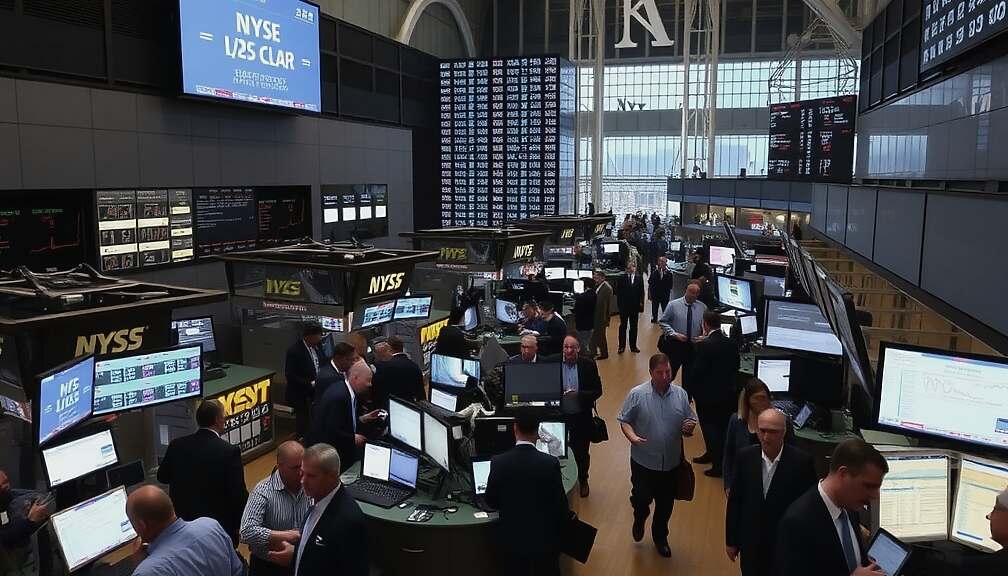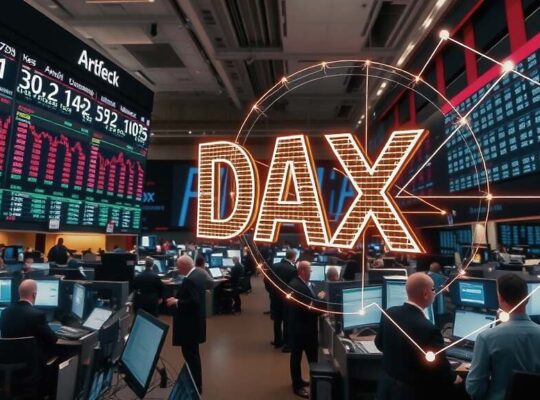The German stock market opened Thursday with a slight decline, the DAX index registering at approximately 24,115 points, a 0.2% decrease from the previous day’s close. Siemens Energy, Rheinmetall and MTU led the gains, while RWE, Siemens and Heidelberg Materials experienced losses. This muted performance reflects broader anxieties surrounding geopolitical tensions and their potential impact on the global economy.
The euro also weakened against the dollar, trading at $1.1595, a consequence, analysts suggest, of increased uncertainty driven by evolving international relations. This currency fluctuation adds another layer of complexity for European businesses navigating a volatile global market.
However, the most significant movement was observed in oil prices, which surged sharply. Brent crude futures climbed to $64.60 per barrel, an increase of 3.2% compared to the previous day’s closing price. This spike, according to Thomas Altmann of QC Partners, is directly attributable to the recently imposed sanctions against Russia, policies championed by former President Donald Trump.
Altmann further highlighted the potentially explosive dynamic developing between the United States and China. Upcoming negotiations concerning China’s purchases of Russian oil are fraught with risk, raising the question of whether Washington will leverage this critical trade dependence to extract concessions, potentially in the form of reduced tariffs. This scenario, he argues, could fundamentally reshape trade agreements and further destabilize international markets.
The significant rise in oil prices presents a considerable headwind for already highly valued stock markets. It triggers a worrying chain reaction, potentially leading to increased energy costs, fueling inflation and ultimately delaying anticipated interest rate cuts. Investors, Altmann emphasizes, must vigilantly monitor the trajectory of oil prices – not only for their immediate market impact, but also for the broader economic implications that could redefine the global financial landscape. The situation underscores the precariousness of current market stability and the crucial role geopolitical considerations now play in investment strategy.












